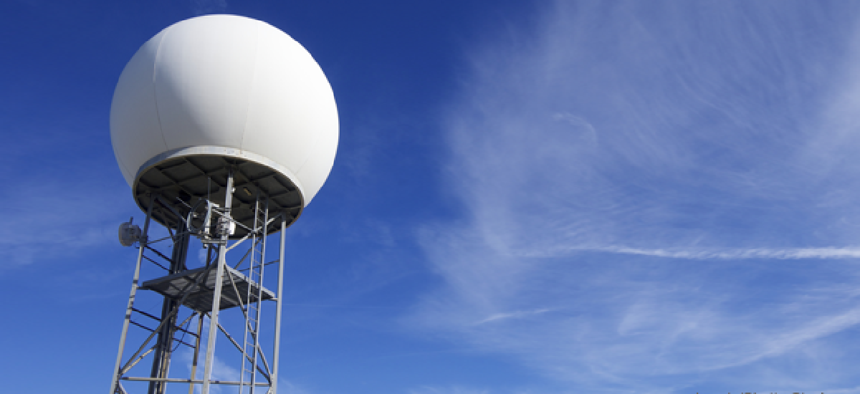NOAA partners with Google on AI


Connecting state and local government leaders
The National Oceanic and Atmospheric Administration has tapped Google to help apply artificial intelligence and machine learning to its troves of satellite and environmental data.
The National Oceanic and Atmospheric Administration has tapped Google to help apply artificial intelligence and machine learning to its troves of satellite and environmental data.
The three-year contract will initially focus on developing small-scale AI/ML systems to advance environmental monitoring, weather forecasting, climate research and technical innovation. Full-scale prototypes of successful pilots will help NOAA operationalize the technology across its organization.
“If successful, this has the potential to be a significant leap in NOAA’s ability to leverage the enormous volume and diversity of environmental data in order to enhance prediction, including for extreme weather events such as hurricanes and tornadoes,” NOAA officials said in the Oct. 27 announcement.
NOAA is already using AI to improve acoustic analysis of beluga whales. A ML model that can distinguish between actual whale calls and other ambient noise has reduced the time scientists spend on analysis by 93%. NOAA is exploring the use of AI to collect and analyze large volumes of scientific data gathered by the unmanned aerial and marine systems it deploys to collect environmental data.
In February, NOAA released its AI Strategy that aims to reduce the cost of data processing and deliver higher quality and more timely services to advance the agency’s mission. The strategy has five goals that target improving NOAA’s computational and analytical capacities, enhancing AI research, transitioning technology to the marketplace, creating partnerships and boosting AI skills of its workforce.
The deal with Google also includes hands-on AI training opportunities for the NOAA workforce.
“Strengthening NOAA’s data processing through the use of big data, artificial intelligence, machine learning, and other advanced analytical approaches is critical for maintaining and enhancing the performance of our systems in support of public safety and the economy,” acting NOAA Administrator Neil Jacobs said. “I am excited to utilize new authorities granted to NOAA to pursue cutting-edge technologies that will enhance our mission and better protect lives and property.”
"By bringing together NOAA and Google’s expertise and talent, we can both resource and jointly explore AI/ML methods to achieve a more effective use of satellite and other environmental data,” said Mike Daniels, vice president, global public sector, Google Cloud. “Our goal is to increase scientific impact, and improve the efficiency and effectiveness of environmental and satellite data by leveraging Google Cloud’s infrastructure and AI/ML know-how. All this will help improve weather forecasting, research and unlock innovation.”
NEXT STORY: 5 security strategies for a distributed DOD




